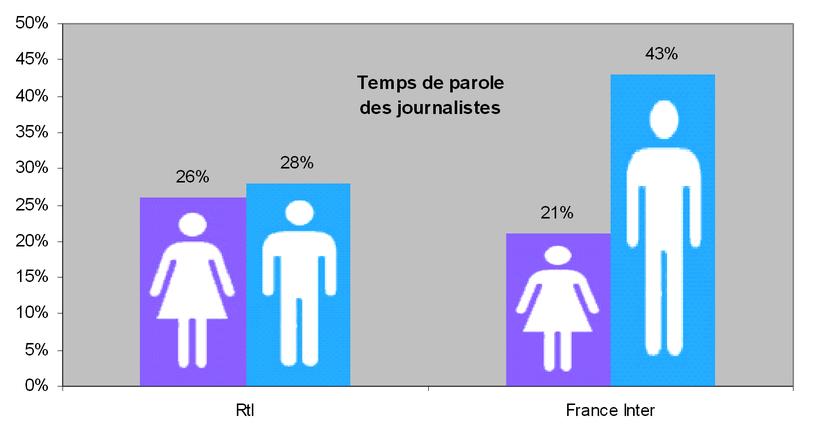5 tips to increase the presence of women in the media scene
Unsurprisingly and despite growing awareness and proposals for incentive measures, the statistics confirm what we already know: women are underrepresented and poorly represented in France. This finding is confirmed for the profiles of female experts and the divide is exacerbated by the crisis. According to the latest government-sponsored report released last September, men account for 83.4% of cover stories and 74.4% of op-eds in the news press.
The first obstacle usually comes from the women themselves. The world that is given to them to see leaves them only a congruent part and does not allow them to project themselves easily. So they do not consider themselves relevant, do not dare, are not identified. So they do not contribute to changing the world that is presented to them...
To break this vicious circle, it is critical to raise awareness among: women, spokespersons, the media, communicators. Here are some tips to help you get started:
1. Have confidence in yourself: you are sufficiently qualified: Women often believe that their intervention will not shed more light on the debate, that there is always a better, more relevant interlocutor to express themselves on a subject that they nevertheless master perfectly.
Do not mystify the journalist's expectations: your intervention will allow him to explain a topical or technical subject for readers or listeners. You are not expected to be more knowledgeable than you already are. If the opportunity is presented to you, you are qualified.
2. Prepare: Would you go to a job or sales interview without preparing beforehand? The exercise is much the same here: it is important to find out about the media (editorial line, political color), the journalist (tone of the interviews, subjects covered previously), the guests (in the context of a TV /radio, knowing who will participate in the debate, their opinions, potential detractors), the audience (who is reading or listening), or even asking to have a list of potential questions that will be asked in advance. Be accompanied by an agency, or your internal communication department can help you.

3. Control your messages: Most of the time, you do not go to an interview only to answer questions but also to share a message. Identify the one you want to communicate (limit yourself to a maximum of 3 messages), ask yourself about the argument of this message, (what concrete evidence can you provide?). Is your speech fluent? To be heard, you have to be convincing and impactful.
How to Go Through a DUI Checkpoint Without Being Tested https://t. co/8ktIHId1Rk
— Ro Bot Mon Sep 03 07:54:35 +0000 2018
4. Take care of your speech: take care of your appearance and posture, work on your voice and the tone used. Whether for a man or a woman, appearance is important and can reflect our values, our image. But the judgment is more corrosive towards women: they are unfortunately looked at before being listened to. Anticipate it to suffer it less. Give priority to short, clear and precise interventions to keep the audience's interest captive.
5. Practice to Excel: All spokespersons improve through practice and getting honest feedback. Multiply the interviews, refine your messages and surround yourself with people you trust.
Journalists are often looking for the expert who will provide both a concise analysis and who will be able to give (tracks) of solutions. The problem of the place of women in the media is a reality but it is also directly linked to the fact that women, for many reasons, lack self-confidence and do not expose themselves as they should. However, expertise and competence are sought-after qualities that are not the prerogative of men.
Things are gradually changing since, according to its latest annual report on the representation of women on television and radio, the Superior Audiovisual Council notes that more and more women are being called express themselves with an 11% increase since 2016.
It should be noted that their presence is stable at 41% of women on the air, but that their speaking time drops to 35% in interviews: on set, they are given less time to express themselves, unlike their male counterparts. They are indeed less quick to take this word, or even to cut it off even when they deem it necessary.
Dear experts, don't worry, very few spokespersons get started without support. But mobilize because your discretion confirms an erroneous vision of the world and of your profession.
(Published forums are the responsibility of their authors and do not engage CB News).








